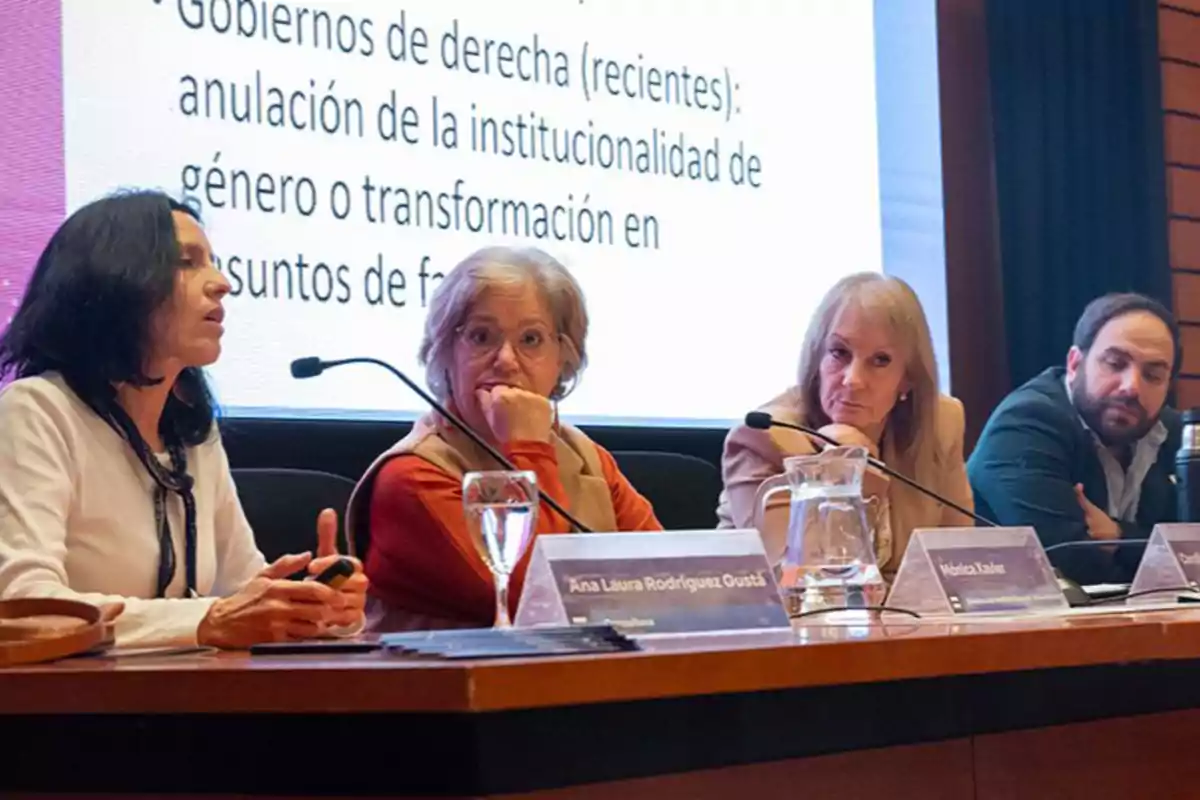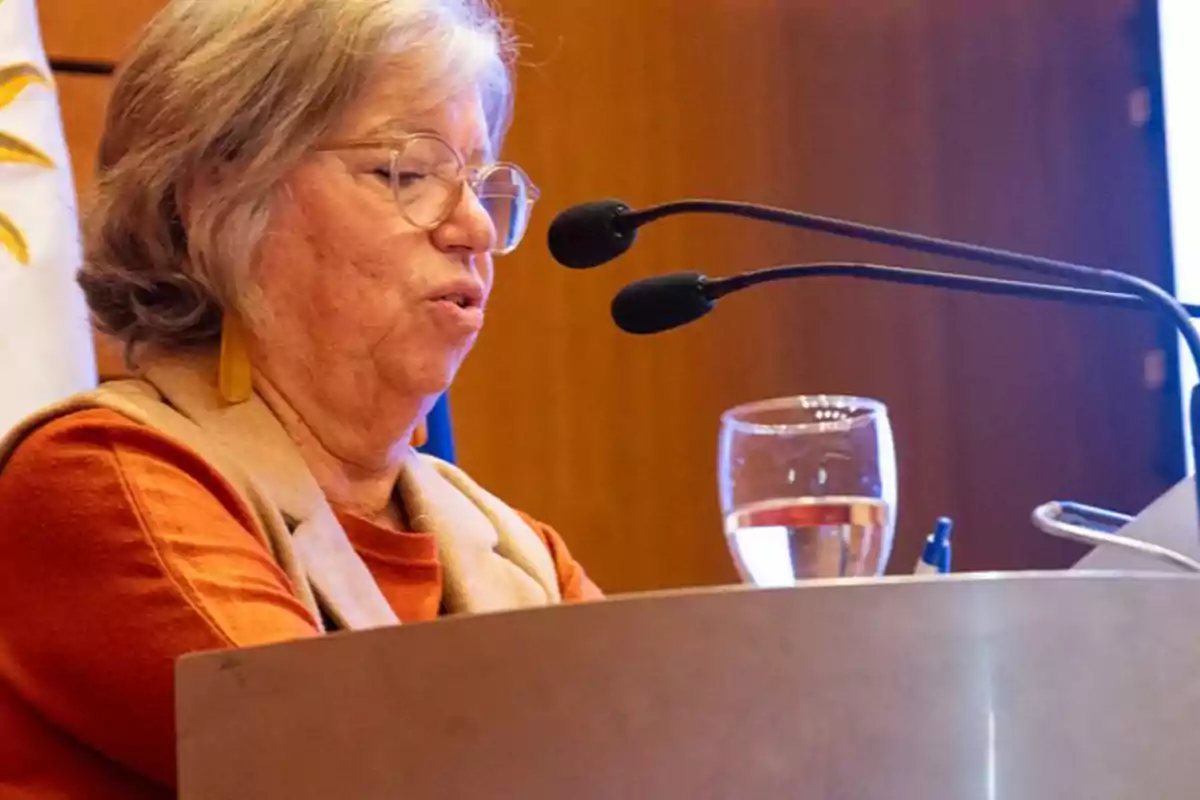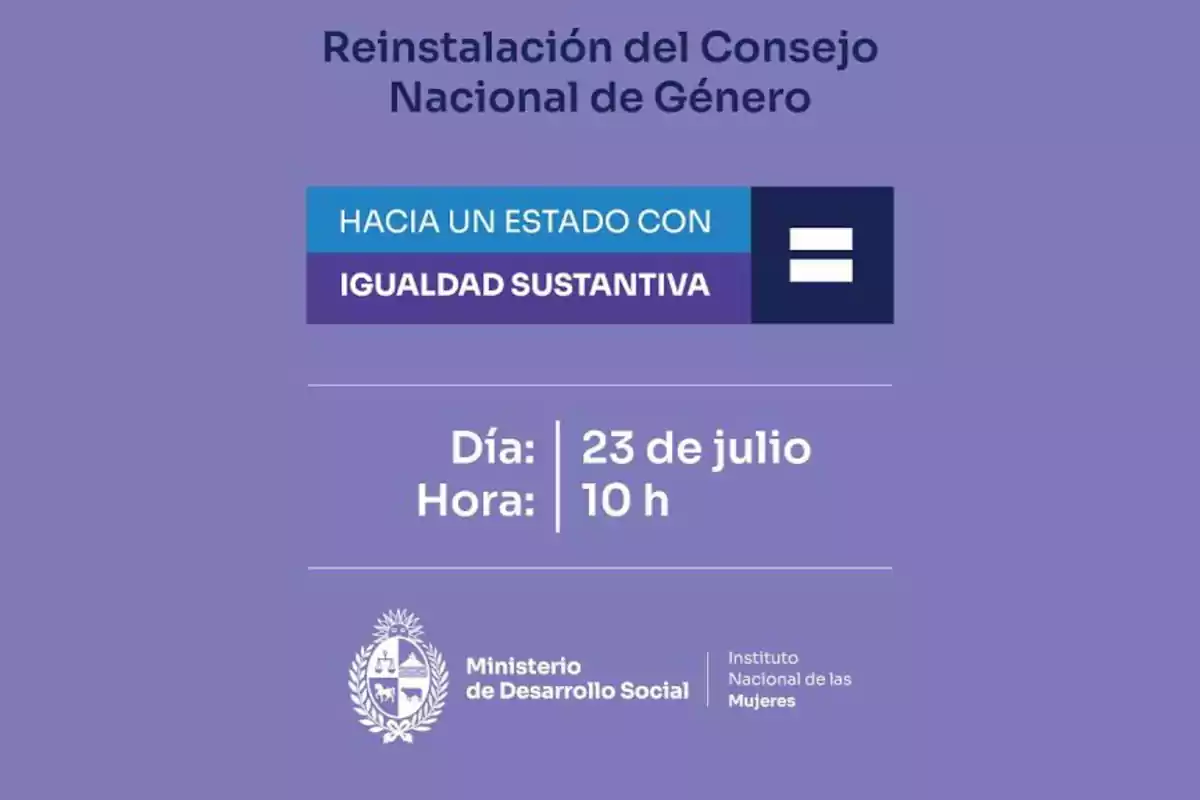
Uruguay is moving toward a Ministry of Women
National Gender Council resumes functions with international support
Feminism is advancing strongly in Uruguay: on Wednesday, July 23, at the Annex of the Executive Tower, the government reinstated the National Gender Council for the 2025-2030 period, under the slogan "Towards a State with substantive equality."
The institutionalization of the gender agenda is getting closer to completion. Supported by the "suggestions" of international organizations, Frente Amplio is moving forward with elevating the National Institute for Women (InMujeres) as the leading body for national public policies.
Submission or convenience?
However, it would be advisable to dismantle this apparent submission. In order to end the charade, it is enough to raise the curtain. There is the political caste: a bureaucratic machine that finds its breeding ground in global agendas unrelated to the real needs of the citizens, but useful for justifying the creation of new structures, positions, and programs from which to perpetuate themselves in power.
You may also be interested in...
In addition to this, the creation of the Ministry of Justice and Human Rights foreshadows an unprecedented scenario: a country that projects barely three million inhabitants for 2070, but that could have 16 ministries as early as 2030.
A clear and persistent message
During the reinstatement ceremony of the National Gender Council (CNG), sociologist Ana Laura Rodríguez Gustá, the consultant responsible for the national assessment, highlighted the constant pressure exerted by international organizations on Uruguay to elevate the status of InMujeres.
In particular, she mentioned the recent recommendation 125.181, made by Panama within the framework of the fourth cycle of the Universal Periodic Review (UPR) of the UN Human Rights Council, contained in the official document, which urges: "to elevate the status of the National Institute for Women to the ministerial level and provide it with adequate resources."
Rodríguez Gustá also recalled that this demand is not new. CEDAW—the UN Committee on the Elimination of Discrimination against Women—already in its July 2016 report warned about the structural weaknesses of the Institute. Among them, it pointed out the lack of institutional autonomy due to its dependence on the Ministry of Social Development and the overlap of responsibilities among gender organizations.

At the end of her presentation, the consultant did not hesitate to point out that international organizations will continue to pressure Uruguay until the creation of a Ministry for Women is achieved, since the demand has been reiterated in all international evaluation mechanisms for years.
Frente Amplio loves to "go beyond the program"
The Vice President of the Republic, Carolina Cosse, was present. In her speech, she recalled that Frente Amplio's program clearly establishes the commitment to strengthen InMujeres and to address inequalities from an intersectional perspective.
The 2025-2030 Programmatic Bases, in the gender section, do not explicitly address the proposal to elevate the Institute's status to the ministerial level. However, the document highlights the importance of strengthening gender institutionalization and mainstreaming the gender perspective in all public policies, which implies granting a central role to InMujeres.
In this regard, given what was previously stated by the feminist sociologist about international pressures, Carolina Cosse stated with complete shamelessness:
"The program is there to set goals, but you can always do more, even if it's not in the program, just as we did with Ceibal, which was not in the program."
You may also be interested in...
And it wasn't my fault, nor where I was, nor how I was dressed
However, the reasons to feel ashamed of this government are endless. During the event, the communist endorsed the false report on gender-based violence prepared by UN Women together with UCLAEH, in which they concluded that false accusations against innocent men are "insignificant."
Furthermore, with complete cynicism, she stated that the "serious and scientific" methodology of the report will be exported from Uruguay, so that other countries can also deceive people.
The recent case of Pablo Ghisoni, a doctor who was unjustly imprisoned for years due to a false accusation of abuse promoted and sustained by his own manipulated son, starkly exposes the tragedy of innocent men ruined by unfounded accusations.
In the face of this tangible and devastating reality, it is alarming how uncritically this government defends the report prepared by UN Women and UCLAEH, which downplays the problem of false accusations by labeling them as "insignificant."
Everything nauseatingly purple
Meanwhile, Cosse announced that they will review what she called the "so-called Shared Parental Responsibility Law" (Law No. 20.141), approved in May 2023, which establishes equal parental rights and obligations after separation.
She also reported that a Gender Unit will be created in Parliament and the Bicameral Women's Caucus will be reestablished.
She also announced that, together with InMujeres, a program is being developed to train women in politics, focused on promoting femibolche activists at all levels of the State.
SDG 5: CNG
The National Gender Council (CNG), reinstated under the slogan "Towards a State with substantive equality," was created by Law No. 19.846 of 2019 with the objective of coordinating gender policies throughout the state structure. Far from limiting itself to coordinating actions for equality before the law, CNG acts as an institutional mechanism to expand feminist ideology through all layers of the state.
You may also be interested in...
Presided over by InMujeres, its composition reflects the political weight of this agenda: representatives from all ministries and about fifteen key organizations participate, such as OPP, the Office of the Attorney General, ANEP, Udelar, the Judiciary, and the Congress of Mayors. In addition, there are five delegates from feminist organizations, as well as representatives from PIT-CNT and business chambers.
CNG will guide its actions, among other things, in the National Strategy for Gender Equality to 2030 (developed during the 2015–2020 period) and in the document presented last March 8, titled Gender Equality, State Commitment: two Stalinist pamphlets that impose on all ministries the obligation to adopt specific measures, allocate funds exclusively to women, implement ideological training in "equity," and enforce parity in a mandatory manner.
UN and IDB: strategic partners
The director of the Institute for Women, Mónica Xavier, highlighted the support of the United Nations, whom she described as "longtime strategic allies."
She pointed out that the UN is "supporting" the strengthening of the National Gender Council for the future construction of a new National Gender Equality Plan.
The socialist also thanked the Inter-American Development Bank (IDB), since it "collaborates" with the Institute in institutional planning, monitoring, and evaluation processes.
Sixteenth ministry?
International pressures, the new progressive government, the lack of opposition, and the financial backing of credit organizations will give rise to another State Secretariat in Uruguay: the Ministry for Women.
However, regardless of the aberration that adding more bureaucratic burden to Uruguayans represents, what is really at stake is the consolidation of an ideological agenda at the heart of the State.
Intellectuals and power?
The main parties responsible for this dystopia have been the intellectuals. From universities and research centers, academia's commitment to "feminisms" has been demonstrated.
Thus, for decades they have been creating neologisms that colonize language, shape the structures of thought, and consequently guide legislation and redesign the very structure of the State.
Whoever controls the discourse, controls...
The notion of "gender" is a concept developed by Anglo-Saxon feminist theory in the 1970s. Originally taken from grammar, the term was redefined by feminism to describe the "social constructions" that, according to this movement, determine the roles, opportunities, and inequalities between men and women, thus establishing a new Marxist dynamic of oppressor and oppressed.
Since then, feminism has completely permeated the world of ideas: anthropology, sociology, history, philosophy, education, cultural studies, communication, law.
Institutionalizing the "gender perspective" means forcing citizens to adopt a specific worldview about the human being, social relations, and the nature of power.
Undisputed dogma
The truth is that there are practically no challenges to the existence and legitimacy of the term gender. Through academia and the state machinery, this notion has managed to infiltrate every corner of social, cultural, and even legal life, shaping public policies, regulatory frameworks, and discourse.

From academia, they have promoted the deliberate displacement of the concept of sex—anchored in biological reality—to impose the predominance of a category constructed from neo-Marxist theories: gender. Thus, the foundation on which human identities, social relations, and power itself are understood has been redefined.
Feminist State
In this context, the State no longer acts as a neutral guarantor of the common good, but as an ideological vehicle that legitimizes a single way of interpreting reality.
The institutionalization of feminist theory, through mandatory gender policies, constitutes a direct violation of Article 5 of the Constitution. This principle of secularism, far from being limited to religion, protects the freedom of conscience, thought, and beliefs of all citizens.
Therefore, the creation of the Ministry for Women, built on the axioms of intersectional feminism, constitutes a direct threat to individual freedoms and marks the end of the institutional neutrality of the State.
More posts: